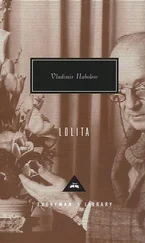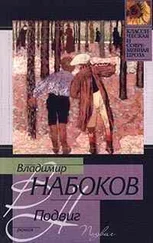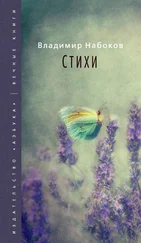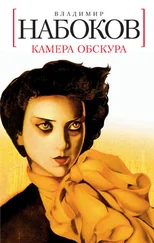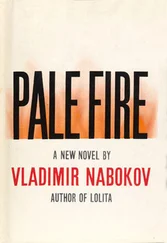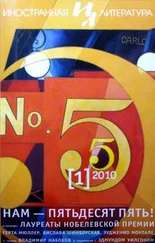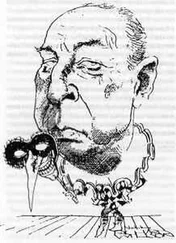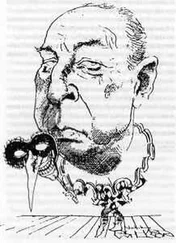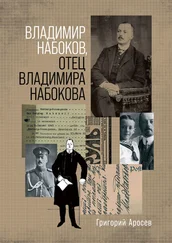Владимир Набоков - Pale Fire
Здесь есть возможность читать онлайн «Владимир Набоков - Pale Fire» весь текст электронной книги совершенно бесплатно (целиком полную версию без сокращений). В некоторых случаях можно слушать аудио, скачать через торрент в формате fb2 и присутствует краткое содержание. Жанр: Классическая проза, на английском языке. Описание произведения, (предисловие) а так же отзывы посетителей доступны на портале библиотеки ЛибКат.
- Название:Pale Fire
- Автор:
- Жанр:
- Год:неизвестен
- ISBN:нет данных
- Рейтинг книги:4 / 5. Голосов: 1
-
Избранное:Добавить в избранное
- Отзывы:
-
Ваша оценка:
- 80
- 1
- 2
- 3
- 4
- 5
Pale Fire: краткое содержание, описание и аннотация
Предлагаем к чтению аннотацию, описание, краткое содержание или предисловие (зависит от того, что написал сам автор книги «Pale Fire»). Если вы не нашли необходимую информацию о книге — напишите в комментариях, мы постараемся отыскать её.
Pale Fire — читать онлайн бесплатно полную книгу (весь текст) целиком
Ниже представлен текст книги, разбитый по страницам. Система сохранения места последней прочитанной страницы, позволяет с удобством читать онлайн бесплатно книгу «Pale Fire», без необходимости каждый раз заново искать на чём Вы остановились. Поставьте закладку, и сможете в любой момент перейти на страницу, на которой закончили чтение.
Интервал:
Закладка:
He was to go through a far more dramatic ordeal thirteen years later with Disa, Duchess of Payn, whom he married in 1949, as described in notes to lines 275 and 433-434, which the student of Shade's poem will reach in due time; there is no hurry. A series of cool summers ensued. Poor Fleur was still around, though indistinctly so. Disa befriended her after the old Countess perished in the crowded vestibule of the 1950 Exposition of Glass Animals, when part of it was almost destroyed by fire, Gradus helping the fire brigade to clear a space in the square for the lynching of the non-union incendiaries, or at least of the persons (two baffled tourists from Denmark) who have been mistaken for them. Our young Queen may have felt some subtle sympathy for her pale lady in waiting whom from time to time the King glimpsed illuminating a concert program by the diagonal light of an ogival window, or heard making tinny music in Bower B. The beautiful bedroom of his bachelor days is alluded to again in a note to line 130, as the place of his "luxurious captivity" in the beginning of the tedious and unnecessary Zemblan Revolution.
Line 85: Who'd seen the Pope
Pius X, Giuseppe Melchiorre Sarto, 1835-1914; Pope 1903-1914.
Lines 86-90: Aunt Maud
Maud Shade, 1869-1950, Samuel Shade's sister. At her death, Hazel (born 1934) was not exactly a "babe" as implied in line 90. I found her paintings unpleasant but interesting. Aunt Maud was far from spinsterish, and the extravagant and sardonic turn of her mind must have shocked sometimes the genteel dames of New Wye.
Lines 90-93: Her room, etc.
In the draft, instead of the final text:
............. her room
We've kept intact. Her trivia for us
Retrace her style: the leaf sarcophagus
(A Luna's dead and shriveled-up cocoon)
The reference is to what my dictionary defines as "a large, tailed, pale green moth, the caterpillar of which feeds on the hickory." I suspect Shade altered this passage because his moth's name clashed with "Moon" in the next line.
Line 91: trivia
Among these was a scrapbook in which over a period of years (1937-1949) Aunt Maud had been pasting clippings of an involuntarily ludicrous or grotesque nature. John Shade allowed me one day to memorandum the first and the last of the series; they happened to intercommunicate most pleasingly, I thought. Both stemmed from the same family magazine Life, so justly famed for its pudibundity in regard to the mysteries of the male sex; hence one can well imagine how startled or titillated those families were. The first comes from the issue of May 10, 1937, p. 67, and advertises the Talon Trouser Fastener (a rather grasping and painful name, by the way). It shows a young gent radiating virility among several ecstatic lady-friends, and the inscription reads: You'll be amazed that the fly of your trousers could be so dramatically improved. The second comes from the issue of March 28, 1949, p. 126, and advertises Hanes Fig Leaf Brief. It shows a modern Eve worshipfully peeping from behind a potted tree of knowledge at a leering young Adam in rather ordinary but clean underwear, with the front of his advertised brief conspicuously and compactly shaded, and the inscription reads: Nothing beats a fig leaf.
I think there must exist a special subversive group of pseudo-cupids - plump hairless little devils whom Satan commissions to make disgusting mischief in sacrosanct places.
Line 92: the paperweight
The image of those old-fashioned horrors strangely haunted our poet. I have clipped from a newspaper that recently reprinted it an old poem of his where the souvenir shop also preserves a landscape admired by the tourist:
MOUNTAIN VIEW
Between the mountain and the eye
The spirit of the distance draws
A veil of blue amorous gauze,
The very texture of the sky.
A breeze reaches the pines, and I
Join in the general applause.
But we all know it cannot last,
The mountain is too weak to wait -
Even if reproduced and glassed
In me as in a paperweight.
Line 98: On Chapman's Homer
A reference to the title of Keats' famous sonnet (often quoted in America) which, owing to a printer's absent-mindedness, has been drolly transposed, from some other article, into the account of a sports event. For other vivid misprints see note to line 802.
Line 101: No free man needs a God
When one considers the numberless thinkers and poets in the history of human creativity whose freedom of mind was enhanced rather than stunted by Faith, one is bound to question the wisdom of this easy aphorism (see also note to line 549).
Line 109: iridule
An iridescent cloudlet, Zemblan muderperlwelk. The term "iridule" is, I believe, Shade's own invention. Above it, in the Fair Copy (card 9, July 4) he has written in pencil. "peacock-herl." The peacock-herl is the body of a certain sort of artificial fly also called "alder." So the owner of this motor court, an ardent fisherman, tells me. (See also the "strange nacreous gleams" in line 634.)
Line 119: Dr. Sutton
This is a recombination of letters taken from two names, one beginning in "Sut," the other ending in "ton." Two distinguished medical men, long retired from practice, dwelt on our hill. Both were very old friends of the Shades; one had a daughter, president of Sybil's club - and this is the Dr. Sutton I visualize in my notes to lines 181 and 1000. He is also mentioned in Line 986.
Lines 120-121: five minutes were equal to forty ounces, etc.
In the left margin and parallel to it: "In the Middle Ages an hour was equal to 480 ounces of fine sand or 22,560 atoms."
I am unable to check either this statement or the poet's calculations in regard to five minutes, i.e. three hundred seconds, since I do not see how 480 can be divided by 300 or vice versa, but perhaps I am only tired. On the day (July 4) John Shade wrote this, Gradus the Gunman was getting ready to leave Zembla for his steady blunderings through two hemispheres (see note to line 181).
Line 130: I never bounced a ball or swung a bat
Frankly I too never excelled in soccer and cricket: I am a passable horseman, a vigorous though unorthodox skier, a good skater, a tricky wrestler, and an enthusiastic rock-climber.
Line 130 is followed in the draft by four verses which Shade discarded in favor of the Fair Copy continuation (line 131 etc.). This false start goes:
As children playing in a castle find
In some old closet full of toys, behind
The animals and masks, a sliding door
[four words heavily crossed out] a secret corridor -
The comparison has remained suspended. Presumably our poet intended to attach it to the account of his stumbling upon some mysterious truth in the fainting fits of his boyhood. I cannot say how sorry I am that he rejected these lines. I regret it not only because of their intrinsic beauty, which is great, but also because the image they contain was suggested by something Shade had from me. I have already alluded in the course of these notes to the adventures of Charles Xavier, last King of Zembla, and to the keen interest my friend took in the many stories I told him about that king. The index card on which the variant has been preserved is dated July 4 and is a direct echo of our sunset rambles in the fragrant lanes of New Wye and Dulwich. "Tell me more," he would say as he knocked his pipe empty against a beech trunk, and while the colored cloud lingered, and while far away in the lighted house on the hill Mrs. Shade sat quietly enjoying a video drama, I gladly acceded to my friend's request.
In simple words I described the curious situation in which the King found himself during the first months of the rebellion. He had the amusing feeling of his being the only black piece in what a composer of chess problems might term a king-in-the-corner waiter of the solus rex type. The Royalists, or at least the Moderns (Moderate Democrats), might have still prevented the state from turning into a commonplace modern tyranny, had they been able to cope with the tainted gold and the robot troops that a powerful police state from its vantage ground a few sea miles away was pouring into the Zemblan Revolution. Despite the hopelessness of the situation, the King refused to abdicate. A haughty and morose captive, he was caged in his rose-stone palace from a corner turret of which one could make out with the help of field glasses lithe youths diving into the swimming pool of a fairy tale sport club, and the English ambassador in old-fashioned flannels playing tennis with the Basque coach on a clay court as remote as paradise. How serene were the mountains, how tenderly painted on the western vault of the sky!
Читать дальшеИнтервал:
Закладка:
Похожие книги на «Pale Fire»
Представляем Вашему вниманию похожие книги на «Pale Fire» списком для выбора. Мы отобрали схожую по названию и смыслу литературу в надежде предоставить читателям больше вариантов отыскать новые, интересные, ещё непрочитанные произведения.
Обсуждение, отзывы о книге «Pale Fire» и просто собственные мнения читателей. Оставьте ваши комментарии, напишите, что Вы думаете о произведении, его смысле или главных героях. Укажите что конкретно понравилось, а что нет, и почему Вы так считаете.

